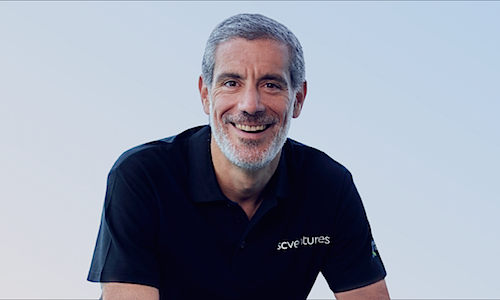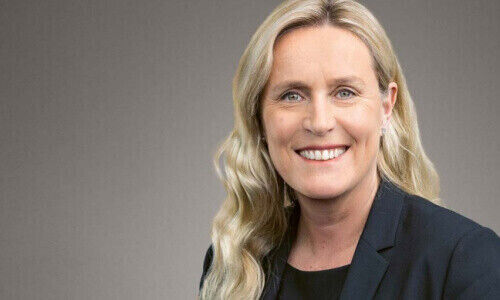Alex Manson: «Tech is Not the Critical Challenge for Transformation»
SC Ventures CEO Alex Manson spoke to finews.asia about a handful of topics including tech transformation, upcoming projects, digital assets, geopolitics and his newly published book.
What was the purpose of SC Ventures when it was formed?
SC Ventures was established in 2018 with the goal of serving clients in the way that they want to be served.
Technology is not the critical challenge for transformation. While I was running one of the business units at Standard Chartered, there were certain client requests I couldn’t fulfill due to structural reasons related to the business model. For example, no bank today provides a bank-agnostic platform because they are not built to do so.
How has the business developed over the years?
We focused on several areas including digital banking, banking as a service (BaaS), SME banking and digital assets. Today, we have built over 30 companies that are at different stages of their development.
Can you share examples of some of the companies that SC Ventures has helped to build?
In digital banking, we’ve built Mox in Hong Kong and Trust Bank in Singapore. Mox is one of the fastest-growing digital banks in the world and Trust Bank just crossed a milestone with 1 million customers.
In BaaS, we have audax which has plug-and-play capabilities from any bank to create fully embedded finance solutions. In SME banking, we have our online business marketplace SOLV, which is available in India, Kenya and Ghana, and Olea, a digital infrastructure platform that supports trade and supply chain finance. In digital assets, we have Zodia Markets for brokerage and Zodia Custody for custody solutions. We also have Libeara for asset tokenisation.
These are just a few examples and it pains me not to do justice to the whole portfolio. It’s like asking me who is my favorite child.
You were recently appointed to become a member of Standard Chartered’s group management team. How will this impact SC Ventures?
My appointment to Standard Chartered’s group management team brings SC Ventures closer to the bank.
For a while, we were very small and under the radar but we have been impactful for a few years now. We’ve affected the bank in a number of ways by providing solutions or exploring new business lines. My new role allows me to do more of that and I can be more attuned to what the bank is thinking and help solve industry problems through the SC Ventures platform.
There has been a lot of discussion about the tokenization of traditional financial assets but the industry has yet to achieve scale. What is your view on this topic?
Tokenization in itself is not revolutionary. You could argue that airlines have been tokenizing air miles for a long time.
The impetus required for the financial industry to adopt asset tokenization at scale is infrastructure. You need bank-grade capabilities to buy, sell, settle and burn coins. Although we are not at that stage yet, I think we can expect significant advancements pretty soon because it is simply a better solution. It is cheaper, more efficient and more accessible.
Staying on the topic of digital assets, there have been a lot of positive headlines for cryptocurrencies especially with a US President who has been openly supportive. What is your view on the market, especially for major tokens like Bitcoin?
I don’t know if the price of Bitcoin will continue to go up or down in the short term. What I will say is that it is an asset class that is here to stay. The fact that it is going up and down through cycles is a sign of resilience and staying power.
The major driver will be continued adoption by institutions such as long-only investors like pension funds, as a part of their asset allocation or central banks as strategic reserves. I understand the caution being taken by traditional financial institutions, especially in relation to retail investors, but staying on the sidelines for too long is definitely a mistake.
Any comments about fintech development specifically in Asia?
Various regions in the world have their own specialties in fintech. Asia, for example, has been very focused on payment infrastructure. This also applies to hubs. Hong Kong as a fintech hub is rapidly developing a digital asset ecosystem on the back of great companies. Singapore’s fintech expertise is in transaction banking services as it has the DNA of being a trading center for goods like commodities.
Another unique characteristic in Asia is its younger demographics which implies quicker digital adoption.
Will geopolitics affect progress in the region?
Historically, geopolitical tensions have been the norm in the world. But I don’t think this impedes innovation and the fintech environment. You could argue that where there is a loss in the exchange of ideas or capital, there is a gain in terms of intensified competition. The race to create the best large language model in generative AI is one example.
What are some notable projects that SC Ventures will be focused on in 2025?
One of the biggest projects we have in mind this year is to provide a very comprehensive proposition of digital banking products to other financial institutions that are looking to accelerate their journeys. Across our portfolio, I think we’ve assembled a robust suite of digital banking offerings.
Another project is related to private credit. Given the type of assets that we have access to via our platforms, I think we have the ability to originate assets for private credit at scale in a way that hasn’t really been done before. At some point, we can tokenize such assets and distribute them to entirely new pools of capital.
You recently published a book entitled «Nothing Ventured, Nothing Gained: Rewiring the DNA in Banking» on March 18. What is this book about?
It’s a collection of a series of stories I think are worth telling about SC Ventures in its first five years after being established. What worked, what didn’t work and the lessons we learned. This includes experiences from team members in their particular space such as early incubation, investments, risk or compliance.
I hope readers enjoy it and I would love to hear their thoughts on it.
Alex Manson is currently the CEO of SC Ventures, Standard Chartered’s fintech arm which aims to promote innovation, invest in disruptive financial technology and explore alternative business models. He is over 30 years of industry experience and previously worked at Standard Chartered, Deutsche Bank and Credit Suisse.




























